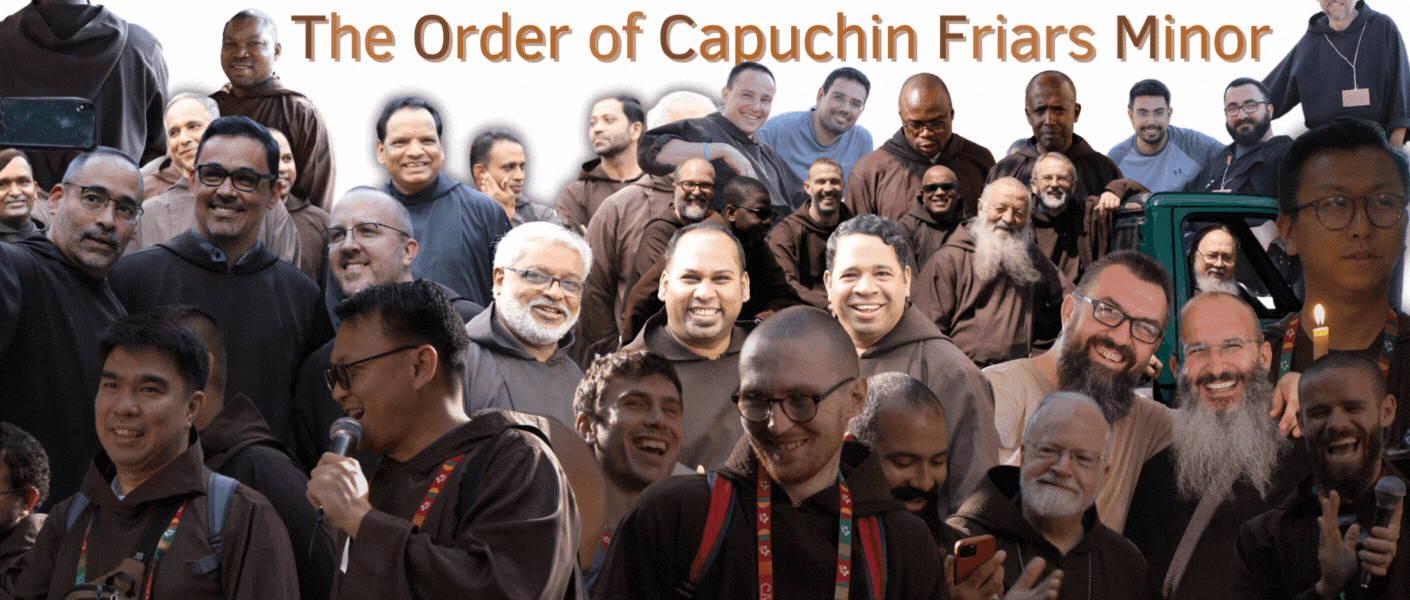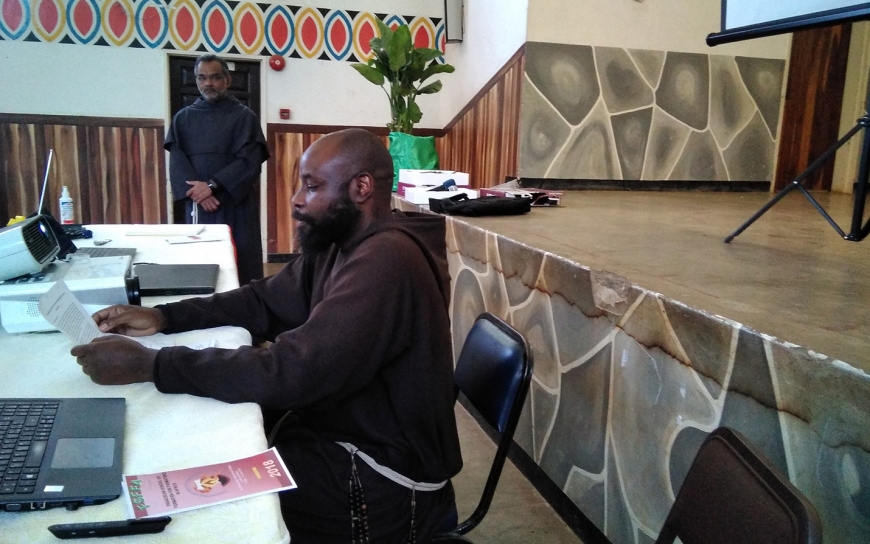FORMATORS AS VESSELS OF CLAY
- Published in General Secretariat for Formation
(Recollection Talk by Br. Augustine Mwape OFM Cap, Custos of Zambia)
“You are like the clay in the potter’s hands, and I am the potter” (Jeremiah 18:6)
In many provinces and custodies there is a tendency to choose best, good or serious friars as formators. It is in our common sense that no appointing authority would risk choosing a “bad friar” as a formator. The work of formation is indeed a very delicate task. However, these “good men” chosen as formators can easily be carried away by pride. A formator may easily forget that he also needs to be formed: that he also needs God and even salvation. Formators give a lot but they can forget about receiving. They can easily forget about their need for conversion (transformation) and personal growth.
Formators are generally powerful people due to the nature of their office. They can in fact be too powerful. Basically, formators have the power “to admit”, to decide on behalf of somebody, to send away, to promote, “to dismiss” or to make someone advance. Formators can be tempted to punish formees if they decide to do so. They can easily be done through evaluations and reports. If they are not careful, this could lead to abuse of their power. Formators are also known to hold the key to one’s future. Sometimes formators can be tempted to take the central part and remove God from the picture. They have to a certain extent “power over life and death”. The truth about formators is that they are not gods but simply human beings who have been given a noble task. They must decrease and God must increase in their lives (cf. John 3:30). Formators should understand their task in the light of simply being IMPERFECT instruments of God. Just like their formees, formators need God so as be continually transformed. The process of ongoing formation must come alive in their day to day living.
Our Human Condition
Through entrusted with this noble work of forming others, formators should be continually reminding themselves about who they are as imperfect human beings. I am calling this the human condition. I have to repeat that formators are simply human beings and not gods. The Word of God describes our human condition in terms of images or figures: Adam, dust, ashes, mere breath, shadows, vapour or grass. We are Adam!!! This simply implies that we are from below (earth), while Christ is from above (cf. Johannine Christology). These are the two opposites. Thus a formator should avoid the tendency of taking the place of Christ. We are indeed from the ground, from the rubbish, from the powder or from the earth. Dust is the symbol of our mortality (cf. Job 7:21). This could also imply the temporality of the work of formation. Nothing in this world lasts forever. The work of formation is simply for a time being. Formators are called upon to do their part. They are not the first or the last. Dust also symbolizes our frailty, fragility or vulnerability as human beings. Formators may seem very strong or even very important because of the office entrusted to them. Formators are like shadows, vapour or grass. They are simply passing.
“For every high priest chosen from among men is appointed to act on behalf of men in relation to God, to offer gifts and sacrifices for sins. He can deal gently with the ignorant and wayward, since he himself is beset with weakness. Because of this he is obligated to offer sacrifice for his own sins just as he does for those of the people. And no one takes this honor for himself, but only when called by God, just as Aaron was” (Hebrew 5:1).
Just like the High priest described in the text above, formators too are ordinary people with ordinary experiences. They are human beings chosen from among other human beings. Formators have ordinary flaws and mistakes. They also have ordinary fears and doubts; ordinary weaknesses and sicknesses; ordinary desires and scandals; ordinary trials and temptations. Formators come from ordinary backgrounds and families. Usually they come from very small, insignificant, unknown or humble families (Judges 6:15, 1 Samuel 9:21, Amos 7:14). Formators are not really the best people in the world. Neither are the formators the cream, the most gifted, the highly favoured, the most intelligent or the most important in the cosmos. They are indeed ordinary people accompanying their fellow ordinary human beings. We are in the context of ordinariness. Thus God uses ordinary things to call us. It could be a sermon, an ordinary life event, a religious habit, a hymn and even just a small book. God calls ordinary men for extraordinary tasks through ordinary means (Acts 5:12;19:11). Though too ordinary we may be as human beings, there is always an extraordinary grace working through and in us. The apostles were ordinary and uneducated people (Acts 4:13). In the same way we use ordinary things to dispense the grace of God: oil, water, bread, wine, etc. the Eucharist though being the real body and blood of our Saviour, it still has an ordinary taste, shape and colour. It comes from ordinary flour and wine prepared by an ordinary factory. The wheat and vines are cultivated by ordinary farmers. In the same way God calls ordinary people without annihilating their human nature. Therefore, the process of formation must also be ordinary. It must be human enough. There is a tendency to make things hard almost beyond human comprehension. Sometimes the standards may be “too angelic”. Maybe it could a tendency on the part of the formators to turn men into angels, overnight.

To be continued at www.sgfcap.org


